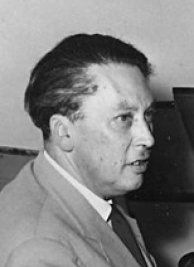Alfred Uhl
Alfred Uhl was born on 5 June 1909 in Vienna (Austria). He studied with Franz Schmidt at the Vienna Music Academy, receiving a diploma in composition with honours in 1932. He subsequently worked as Kapellmeister of the Swiss Festspielmusik in Zürich. While there he composed scores for a variety of cultural and industrial films. He returned to Vienna in 1938 and in 1940 was drafted into the Austrian Army. From 1940 to 1942 he commanded a French prison camp in Neumarkt. He joined the faculty of the Vienna Music Academy in 1945, where he taught theory, orchestration and composition until his retirement in 1980.
Alfred Uhl died on 8 June 1992 in Vienna (Austria).
Alfred Uhl wrote eight film scores, one opera, several choral works, and multiple symphonic and chamber music pieces among them are a sinfonietta, a clarinet concerto, two violin concertos, 2 string quartets, a string trio. He wrote extensively for the clarinet, including educational material and works that are still common repertoire.
For his compositions he received the Vienna Schubert Prize (1943), the Austrian State Prize (1960), the Vienna Music Prize (1961), the Viennese Gold Medal of Honour (1969) and the Austrian Badge of Honour for Service and Arts (1980).
In my possession is the autograph manuscript of the "Perpetuum mobile, for flute and guitar". According to work catalogue Alfred Uhl only composed one work for flute and guitar, the "3 Stücke" from the year 1982. The "3 Stücke" consists of the parts "Scherzo capriccioso", "Notturno" and "Humoreske", so the Perpetuum mobile in the manuscript seems to be an independent work. The duration is around 2 minutes.
